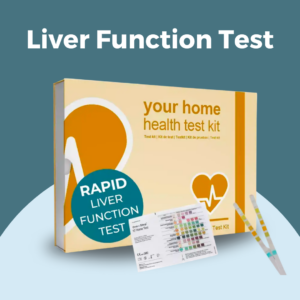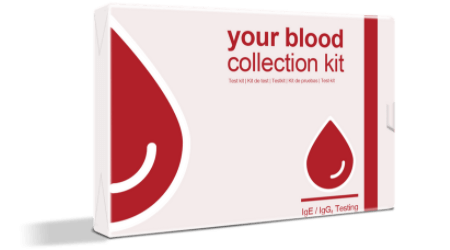Your liver is like the wastewater treatment plant for your body. Located on the right-hand side, just below your ribs, the liver is the largest solid organ in the body (and one of the most under-appreciated). Tirelessly at work, it helps everything from digestion to energy storage.
Unbeknownst to many people, however, liver damage can cause a host of damaging symptoms. That’s why you should know how to check liver function at home.
Using a simple test, you can identify key liver issues, helping prevent disease before irreparable damage is caused. Here’s how.
What is the Liver’s Function?
The liver is primarily involved in digestion and metabolism, including:
- Producing 800 to 1,000 mL of bile daily to help digest foods in the small intestine.
- Filtering the blood from the stomach to remove harmful substances and pathogens.
- Breaking down dangerous toxins (e.g., alcohol), medications, and other nutrients like fats and protein.
- Stores fat-soluble vitamins and excess sugar (as glycogen).
- Creates immune system factors, blood clotting proteins, and removes old or damaged red blood cells.
In short, the liver is the Swiss Army Knife of the body, covering the immune system to fat digestion. Without your liver, you couldn’t survive.
Why You Should Check Your Liver Function
Your liver isn’t just a tireless workhorse filtering your blood and breaking down harmful compounds. It also has a remarkable regenerative ability. If injured or a portion is removed (i.e., via surgery), the liver tissue can grow back.
In fact, only a week after removing two-thirds of the liver, it can return to the same weight as before surgery.
Except, if the damage to the liver is persistent and long-term, it can eventually overwhelm this regenerative capacity. Preventing liver disease before this point is critical to maintaining a healthy body. But even as the damage occurs, people can notice severe symptoms, including:
- Jaundice (yellowing of the skin and eyes)
- Dark urine colour
- Pale stool colour
- Chronic fatigue
- Nausea or vomiting
- Loss of appetite
- Swelling in the abdomen
- Itchy skin
- Mental confusion
Conditions Associated with Poor Liver Function
Poor liver function isn’t just life-changing but life-threatening. If left untreated, persistent damage can leave a person in need of a liver transplant. Some of the most common yet dangerous causes of liver damage include:
- Hepatitis: Inflammatory condition of the liver, often caused by a viral infection.
- Liver Cancer: Primarily hepatocellular carcinoma.
- Alcoholic Liver Disease: Damage to the liver and its function due to alcohol abuse.
- Non-alcoholic Fatty Liver Disease (NAFLD): Fat build-up in the liver of people who drink little or no alcohol.
These conditions damage the fundamental structure of the liver, causing scarring and preventing regeneration. The end result is liver cirrhosis, characterised by fibrosis within the liver tissue. Cirrhosis is irreversible and has a poor survival rate.
Other rarer causes include:
- Autoimmune Hepatitis: A disease in which the body’s immune system attacks liver cells.
- Hemochromatosis: A disorder that causes the body to absorb too much iron from the diet, leading to iron overload.
- Wilson’s Disease: A rare inherited disorder that causes copper to accumulate in the liver, brain, and other vital organs.
How to Check Your Liver Function At Home
Learning how to check your liver function at home is critical if you suspect you may have a liver condition (see symptoms above). People who drink heavily or are overweight should consider testing their liver function.
If you see a doctor, they’re likely to perform both a liver function test (LFTs) or urinalysis. The former tests for the concentration of specific liver enzymes within the blood; the latter tests for indicators of liver and kidney disease and can be performed at home.
Our Liver Function Test looks for 10 markers of liver and kidney health:
- Leukocytes: These white blood cells play a crucial role in fighting infections. Their presence in urine might point to urinary tract or kidney infections.
- Nitrites: Certain bacteria responsible for urinary tract infections convert nitrates to nitrites. Thus, nitrites in urine may signify a UTI.
- Urobilinogen: This bilirubin byproduct typically exists in small quantities in the urine. However, increased levels may suggest liver disease.
- Protein: Elevated protein levels in urine can be a marker of kidney disease.
- pH: This measure indicates the acidity or alkalinity of the urine, which is critical for diagnosing various metabolic and kidney disorders.
- Blood: The presence of blood in urine can be a sign of severe UTI, cystitis, kidney stones, or even bladder/kidney cancer.
- Specific Gravity (SG): An increased specific gravity can hint at conditions like UTI, diabetes, dehydration, kidney infections, kidney failure, or heart failure.
- Ketones: The body produces ketones when it begins to burn fat for energy, usually due to dieting, prolonged fasting, or more serious conditions like diabetes.
- Bilirubin: This byproduct of red blood cell breakdown shouldn’t be in the urine in high quantities. Its presence can be a symptom of liver disease.
- Glucose: Typically, kidneys process glucose and reintroduce it into the body. Detectable glucose in the urine can be a sign of undiagnosed diabetes.
Low urinary urobilinogen and bilirubin are both cardinal signs of liver disease – and should occur alongside jaundice. However, low urinary pH is also associated with non-alcoholic fatty liver disease, according to new research.
Final Thoughts
That’s everything you need to know about how to check your liver function at home.
Allergy Test’s Liver Function Test arrives within 1-3 business days. It includes five easy-to-use urine test strips and a simple colour chart to help analysis. If you see any positive results, always speak to your doctor or a medical professional for further information.
Check your liver function today!



